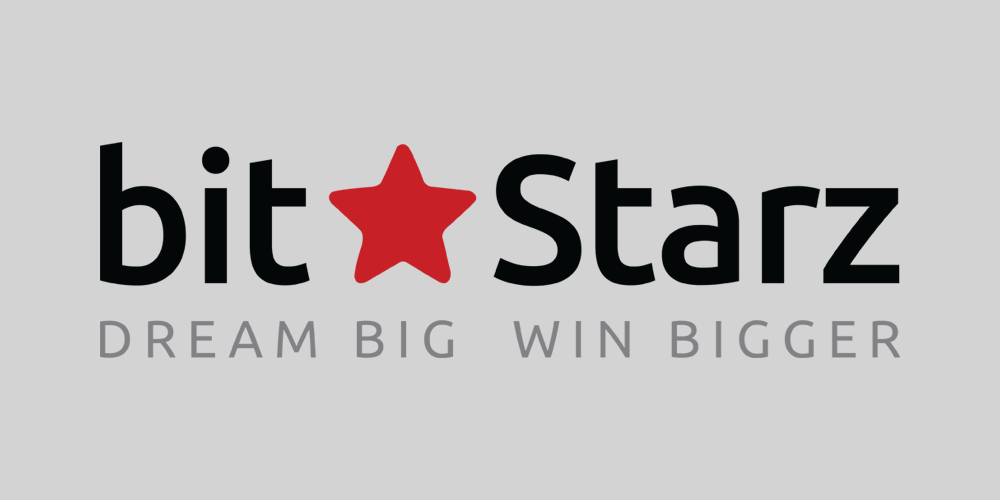Worldcoin’s introduction of iris scanning to verify human identities in exchange for digital currency may seem like a plot straight out of a Black Mirror episode, but this is no fictional tale; it is a present-day project within the realm of Web3.
Worldcoin, operating on Optimism, has raised concerns about whether it contradicts the decentralized promise of Web3 by essentially centralizing biometric data.
Despite more than 2 million individuals from underserved areas already participating in this initiative to receive 25 WLD (valued at less than $100 at present) in return for sharing their biometric data, there are serious privacy risks and potential for exploitation by malicious actors.
The rationale behind Worldcoin’s creation lies in addressing the anticipated externalities of its sister company, OpenAI, which has given the world AI products like ChatGPT.
In their vision, Worldcoin aims to increase economic opportunities, establish a reliable way to differentiate humans from AI online while preserving privacy, enable global democratic processes, and potentially pave the way for AI-funded Universal Basic Income (UBI).
However, the project’s centralization by a single company raises new issues. Biometric data, particularly iris scans, is highly sensitive and can reveal intimate details about an individual, such as sex, ethnicity, and even potential medical conditions.
Granting one entity control over this data poses serious privacy concerns, as it opens the door for unauthorized monitoring and tracking of individuals without their consent.
There is also the risk of commercial exploitation, where the data could be used for targeted advertising or sold to other entities, contrary to the privacy-oriented goals many have been striving to achieve.
Moreover, centralizing biometric data makes it a tempting target for hackers and cybercriminals.
Such a “honeypot” situation could lead to massive data breaches, resulting in identity theft, fraud, and unauthorized access to the personal information of millions.
The issue goes beyond privacy and security concerns.
READ MORE: Why Didn’t Bitcoin (BTC) Enter a New Rally?
If the company possesses biometric data from foreign citizens and provides them with UBI payments, it could potentially compromise the sovereignty of countries’ democratic processes.
Governments could subpoena the data without warrants, allowing for manipulation, dissent suppression, and surveillance on an unprecedented scale.
When individuals visit Worldcoin’s Orbs for iris scanning, they are handed a sticker proclaiming them as “Verified Human.”
This portrayal of personhood as a mere human in a vast biometric database raises discomforting questions about the erosion of personal identity and the consequences of selling one’s data to a cryptocurrency project with connections to AI development.
In conclusion, while Worldcoin may have noble intentions, the potential risks and consequences of centralizing biometric data for financial gains raise valid concerns.
It is essential to strike a balance between technological advancement and safeguarding individual privacy and sovereignty in the digital age.
Sometimes, reality can be more unsettling than fiction, and it is crucial to carefully consider the implications of such projects on society as a whole.
Other Stories:
Revealed: The Best Crypto Marketing & PR Agency
SEC and Binance Oppose Eeon’s Intervention in Crypto Exchange Lawsuit
3 Best Crypto Projects That Will Boom In 2023 & The Next Bull Run
In this article, we review and rank the best crypto casinos. Most of these casinos are accessible to players in the USA and most other countries, while some don’t accept US-based players.
Read on to discover our ranking of the best crypto and bitcoin casinos, with the highest payouts and best reputation for paying out on time.
1) BitStarz
BitStarz, launched in 2014, has gained global recognition as one of the premier cryptocurrency online casinos. It was among the first wave of casinos that started accepting Bitcoin, ultimately making its mark as a trailblazer in the industry.

BitStarz represents the seamless merger of the thrill of online gambling with the innovation of cryptocurrency.
Operating under the laws of Curacao, BitStarz offers over 3000 games, encompassing a variety of genres like slots, table games, live dealer games, and progressive jackpots. This immense variety ensures that there is something for every player, making BitStarz an appealing platform for gamblers worldwide.
Provably Fair Betting
The cornerstone of BitStarz’s success lies in its commitment to ensuring fair gaming. It was one of the first online casinos to implement the ‘Provably Fair’ system, a revolutionary protocol that enables players to verify the fairness and randomness of each game’s outcome.
This feature provides players with an unprecedented level of transparency and confidence in the integrity of the gaming platform.
Gamble With Bitcoin, Ethereum & Other Coins
One of the defining features of BitStarz is its flexibility with cryptocurrencies. Besides Bitcoin, BitStarz also accepts other popular digital currencies such as Litecoin, Ethereum, Dogecoin, and Bitcoin Cash. For players who are not quite ready to jump into the world of crypto, BitStarz offers the best of both worlds by also accepting fiat currencies.
This makes BitStarz accessible to a wide range of players, regardless of their familiarity or preference for cryptocurrencies.
User-Friendly Design
User experience is at the forefront of BitStarz’s operations. Its website has a sleek and intuitive design, allowing players to navigate easily between different sections and games. Furthermore, BitStarz provides top-notch customer service, with its support team available 24/7 through live chat or email to assist players.
Free Bonuses
One of BitStarz’s key attractions is its promotional offers and bonuses. BitStarz provides a generous welcome package for new players, along with regular promotions for existing players, such as free spins and reload bonuses. Such promotions not only enhance the gaming experience but also offer players a higher potential return on their bets.
Speed & Security
BitStarz has also invested significantly in security measures to protect its users’ information and funds. The website employs SSL encryption, safeguarding the personal and financial data of its users. The casino’s use of cryptocurrencies further augments this security by adding the robust protections inherent in blockchain technology.
The speed of transactions is another significant benefit of BitStarz. Withdrawals in cryptocurrencies are almost instantaneous, a marked advantage over traditional online casinos where processing times can vary. This feature, coupled with the transparency of the blockchain, offers an unrivaled user experience in terms of transaction speed and security.
Despite these numerous advantages, it is worth noting that BitStarz, like any other casino, should be approached with responsible gambling in mind. While cryptocurrencies provide added privacy and security, they also come with their volatility, which could affect the value of players’ winnings.
Moreover, the legality of online gambling and the use of cryptocurrencies varies across jurisdictions, and players must be aware of their local laws before participating.
2) BetFury
Launched in 2019, BetFury is a decentralized iGaming platform that has rapidly made a name for itself in the realm of crypto and Bitcoin casinos.

Building its foundation on the principles of transparency, fairness, and user-centric experiences, BetFury has successfully carved out a niche for itself within the dynamic iGaming industry.
Huge Selection of Casino Games
BetFury’s gaming library is a testament to the platform’s commitment to offering a diverse and comprehensive gaming experience. With over 1000 high-quality games, including slots, table games, and live dealer games, it caters to the tastes and preferences of a wide range of players.
The platform is furnished with the best games from industry-leading developers, offering an unparalleled mix of classic casino favourites and new, innovative titles.
BFG Token
A distinguishing feature of BetFury is the integration of its unique in-house token, BFG, which is used to play games and also forms the basis of the platform’s staking system. Players who wager in games earn BFG tokens, which they can stake to receive a share of the platform’s daily profits.
This unique staking model fosters an active and engaged community, as players are incentivized not only to play but also to contribute to the platform’s overall growth.
Fair Gambling
BetFury is founded on blockchain technology, ensuring utmost transparency and security in its operations. It employs the ‘Provably Fair’ system, allowing players to verify the randomness and fairness of each game outcome. This feature helps build trust among players, ensuring them that the games are not manipulated.
Play With BTC, ETH & BNB
Another prominent feature of BetFury is its hybrid payment system. While it is primarily a Bitcoin casino, BetFury supports multiple cryptocurrencies, including Ethereum, Tron, and Binance Coin, and also offers the option for fiat transactions. This flexibility broadens its appeal, making the platform accessible to both crypto-savvy players and those who prefer traditional currencies.
Sleek Platform
BetFury takes the user experience seriously. Its platform is designed to be intuitive and user-friendly, making it easy for players to navigate through the vast selection of games. Furthermore, BetFury offers a multi-language interface, catering to a global audience. This international focus is complemented by a robust customer support system, which includes 24/7 live chat support in multiple languages.
Welcome Offers
BetFury also stands out in its approach to promotions and bonuses. It offers an array of promotional events, including a lucrative welcome bonus, daily tasks, and jackpot competitions. These bonuses and promotions, coupled with the unique profit-sharing model, provide players with multiple opportunities to increase their winnings.
On the security front, BetFury utilizes advanced SSL encryption technology to safeguard users’ personal and financial information. Additionally, the decentralized nature of its operations and transactions, powered by blockchain technology, adds an extra layer of security, ensuring the safety of users’ funds.
What Are Crypto & Bitcoin Casinos?
Crypto and Bitcoin Casinos are online gambling platforms that allow users to bet with cryptocurrencies. These casinos accept a range of digital currencies, including Bitcoin, Ethereum, Litecoin, and many others. The advent of these casinos has ushered in an entirely new paradigm, redefining the traditional concept of gambling by integrating digital currencies, blockchain technology, and smart contracts.
The fundamental allure of these casinos lies in the inherent characteristics of cryptocurrencies. The decentralized nature of cryptocurrencies eliminates the need for a central authority like a bank or government, providing players with unparalleled financial freedom. This has a tremendous impact on the global reach of these casinos, enabling players to participate irrespective of their geographical location or the absence of a traditional banking system.
Improved Privacy
Additionally, the level of privacy offered by crypto casinos is significantly greater than traditional online casinos. Given that cryptocurrencies operate on the blockchain, a digital ledger where transactions are recorded in a secure and transparent manner, users can gamble anonymously.
Transactions made in Bitcoin or other cryptocurrencies are pseudonymous, meaning the identity of the user is concealed. This can be particularly appealing for players who prefer to keep their gambling activities private.
Security & Fairness
The use of blockchain technology also enhances the security and fairness of the games. With blockchain, each transaction is immutable once recorded. This feature prevents any manipulation of game outcomes or betting results, ensuring a fair gaming experience for all users. Some crypto casinos also employ Provably Fair technology, a system that allows players to verify the randomness and fairness of every game outcome, thereby further enhancing the trustworthiness of the platform.
Lower Fees
In terms of financial advantages, crypto casinos often come with lower transaction fees compared to traditional casinos, mainly because cryptocurrencies cut out the need for intermediaries in financial transactions.
Moreover, the transaction speed is typically faster, as blockchain transactions can be processed 24/7, enabling instant deposits and withdrawals.
Potential Drawbacks of Crypto Casinos
While crypto and Bitcoin casinos offer several benefits, they are not without challenges. The volatility of cryptocurrencies can be a cause of concern for gamblers. A significant drop or rise in the value of the currency could affect the player’s winnings.
Furthermore, legal and regulatory issues surrounding cryptocurrencies differ from one jurisdiction to another, posing potential difficulties.
Summary
Crypto and Bitcoin casinos represent a fusion of two innovative technologies—online gaming and digital currency. They are transforming the gambling industry, offering a novel and exciting experience that combines the thrill of gambling with the advanced features of cryptocurrencies. With their potential to offer a secure, private, and global platform, these casinos are rewriting the rules of the game in the digital age.
Like every innovation, Crypto and Bitcoin casinos have their set of advantages and challenges. They are a vibrant testament to the changing landscape of the gaming industry, heralding a future where technology and entertainment cross paths in unique ways.
As we look forward, it becomes crucial to understand, navigate, and embrace this new world of cryptocurrency-powered entertainment.
Bitcoin (BTC) saw a significant influx of activity on exchanges on July 27, indicating the possibility of heightened volatility ahead.
On-chain analytics firm Glassnode reported that intraday BTC exchange inflows reached multi-month highs, sparking concerns among traders about potential price swings.
BTC’s price has been struggling to break above $30,000, with many traders cautioning against further downside risks.
The uncertainty in the market has left Bitcoin’s largest-volume investor cohort, the whales, in a state of uncertainty as well.
The recent movement of large amounts of coins has drawn attention to the entities sending funds to exchanges, raising the possibility of increased selling pressure.
One market observer, James Straten from CryptoSlate, pointed out that over 10,000 BTC flowing into exchanges in a single day represented the most significant one-day increase in months.
He compared it to the situation during the SVB collapse in March, which caused widespread market uncertainty.
Trader Ali, in agreement with Straten’s observation, warned of a potential spike in volatility.
READ MORE: 3 Best Crypto Projects For The Next Bull Run
Data from research firm Santiment also showed that a substantial number of idle BTC changed hands over the past 24 hours, coinciding with a 10,000 BTC increase in supply on crypto exchanges.
While the combined BTC balance on the monitored exchanges went back above 2.25 million, it is crucial to note that overall balances remain at multi-year lows.
The last time balances were at this level was in March 2018.
Straten highlighted the impact of the cost basis of different hodler cohorts on BTC’s price.
Both short-term and long-term holders’ cost bases have been closely monitored by Glassnode and others as significant support levels. Long-term holders, for instance, have reduced their cost basis to $20,490, the lowest since April 2022.
The realized price is only $70 below this level. In previous bear markets in 2015 and 2019, the short-term holder realized price acted as support, and in 2023, it has been tested three times, currently at $28,241.
In conclusion, the surge in BTC exchange inflows on July 27 has raised concerns about potential volatility in the cryptocurrency’s price.
Market observers and traders are closely monitoring the movement of coins on exchanges, as well as the cost basis of different hodler cohorts, as potential indicators of future price movements.
The situation remains uncertain, and market participants are bracing for possible fluctuations in the coming days.
Other Stories:
Former Twitter Product Director Exposes Peculiarities of Working Under Elon Musk
Crypto.com Receives Approval from Dutch Central Bank
Crypto Mining Firm Explores Initial Public Offering (IPO) in UAE
Former FTX CEO, Sam Bankman-Fried, known as “SBF,” is seeking to have documents related to his interviews with a New York Times reporter concerning his relationship with Caroline Ellison kept confidential.
Bankman-Fried’s legal representatives filed a request on July 27 in the United States District Court for the Southern District of New York to seal these documents, citing the necessity to prevent their public dissemination.
The court and Department of Justice have already received the documents that Bankman-Fried shared with the reporter, leading to personal details from Ellison’s private journals being revealed.
Prosecutors in the case are now urging the court to revoke SBF’s $250-million bail, alleging that he used his freedom to intimidate Ellison, his former romantic partner and colleague, who is expected to testify against him.
However, Inner City Press, a news outlet, has expressed opposition to the request for sealing the documents, arguing that since the information has already been disclosed to one media outlet, it should not be kept from the public, likening it to undermining the principles of transparency.
READ MORE: Crypto Mining Firm Explores Initial Public Offering (IPO) in UAE
The information published in the NYT story from Ellison’s journals included her feelings of being overwhelmed by her position at Alameda Research and her breakup with Bankman-Fried.
If the request to seal the documents is denied, it remains uncertain what other details about the individuals might come to light.
Currently, SBF is subject to a temporary gag order issued on July 26, which substantially restricts him from making any extrajudicial statements concerning his criminal case until the arguments on bail are resolved.
The prosecutor’s arguments on bail conditions are scheduled for July 28, while Bankman-Fried’s legal team will present theirs on August 3.
Depending on the court’s decision, SBF could face detention until his trial in October.
Regarding the charges, prosecutors informed Judge Kaplan on July 27 that they plan to drop the campaign finance violation charge against SBF due to an extradition agreement with the Bahamas.
Nonetheless, the former FTX CEO still faces 12 criminal counts, and his trials are scheduled for October 2023 and March 2024, respectively.
Other Stories:
Former Twitter Product Director Exposes Peculiarities of Working Under Elon Musk
The Indian Supreme Court has criticized the Union government for the absence of regulations pertaining to cryptocurrencies in the country.
In a recent report by a local media outlet, the court expressed disappointment at the government’s failure to provide clear guidelines regarding the use of cryptocurrencies.
This concern arises in the context of an increasing number of criminal activities involving digital currencies.
Consequently, the court directed the Union government to clarify whether it intends to establish a specialized federal agency to investigate such crypto-related criminal cases.
During the hearing of petitions connected to cryptocurrency fraud cases across different states of India, the Supreme Court emphasized the urgent need for a proper legal framework.
It urged the government to respond and disclose its capacity to create a mechanism capable of effectively handling and investigating these cases.
The court’s primary aim is to safeguard the national interest by addressing the challenges posed by cryptocurrencies through a dedicated and expert agency.
The quest for comprehensive and well-defined crypto regulations in India has been a prolonged struggle.
The process of formulating a crypto bill was initiated in 2018 following the instructions of the Supreme Court.
READ MORE: Former Twitter Product Director Exposes Peculiarities of Working Under Elon Musk
However, despite assurances over the past four years, the government has yet to present the final draft of this bill, leaving the crypto market in a state of uncertainty and ambiguity.
Meanwhile, even as the government remains hesitant in providing clear regulations, it moved quickly to impose taxation laws on cryptocurrencies, effective from April 2022.
These laws were introduced during a bullish market period when India witnessed a surge in crypto markets, with significant trading volumes and the emergence of numerous crypto unicorns.
However, the lack of regulatory clarity due to the absence of comprehensive guidelines led to a negative impact on the thriving crypto market.
Consequently, many established crypto firms chose to relocate outside of India to ensure more favorable operating conditions.
In conclusion, the Indian Supreme Court’s recent reprimand emphasizes the need for the government to expedite the formulation of crypto regulations.
With criminal activities on the rise and a flourishing crypto market at stake, the establishment of a specialized federal agency and clear guidelines is imperative for the country’s interests.
Until a concrete legal framework is in place, the uncertainty surrounding cryptocurrencies in India may continue to deter potential investors and impede the growth of the digital asset industry in the nation.
Other Stories:
Crypto Mining Firm Explores Initial Public Offering (IPO) in UAE
The United States Securities and Exchange Commission (SEC) and Binance have both responded to the involvement of the entity called “Eeon” in the SEC’s case against the crypto exchange.
In the U.S. District Court for the District of Columbia, both the SEC and Binance opposed Eeon’s request to intervene in the lawsuit, stating that Eeon does not meet the necessary legal requirements for intervention and consent.
The SEC argued that Eeon has a track record of repeatedly attempting to represent itself in court cases without success.
Furthermore, the Securities Exchange Act prohibits private litigants from intervening, making Eeon’s request impermissible.
READ MORE: 3 Best Crypto Projects That Will Boom In 2023 & The Next Bull Run
The SEC also contended that Eeon’s involvement in the lawsuit would have no significant impact, as their claims align with those of the defendants and do not fulfill the requirements for intervention.
Additionally, the agency pointed out that Eeon’s counterclaims are contradictory in nature.
Binance, in its response, cited three grounds for dismissing Eeon’s petition: the lack of consent from the SEC, Eeon’s failure to establish itself as a legitimate party of interest, and its inability to meet the necessary legal requirements for intervention.
Both the SEC and the defendants, Binance and its CEO Changpeng “CZ” Zhao, are unified in their opposition to any intervention by Eeon in the SEC’s lawsuit against Binance and its CEO.
Meanwhile, Binance has taken steps to dismiss the lawsuit brought against it by the U.S. Commodity Futures Trading Commission (CFTC).
The exchange argued that the CFTC’s attempt to regulate foreign individuals and corporations outside the U.S. exceeds the limits of its statutory jurisdiction.
However, due to extended court deadlines for responses by both the CFTC and Binance, the dismissal process is expected to extend into 2024.
Other Stories:
Former Twitter Product Director Exposes Peculiarities of Working Under Elon Musk
Bitcoin (BTC) experienced a pullback on July 27, erasing the gains from the previous day, while macroeconomic data in the United States had a muted effect on the cryptocurrency’s price.
After reaching a brief peak of $29,680 just before the daily close, BTC’s strength started to fade, even though the Federal Reserve had already raised interest rates to their highest level since 2001, which had been anticipated by the markets.
On the same day, the U.S. gross domestic product (GDP) for Q2 exceeded expectations, growing at an annualized rate of 2.4%.
This result suggested that inflationary pressures were still subsiding, potentially benefiting risk asset performance.
Surprisingly, Bitcoin did not show a noticeable reaction to this positive economic data, and stocks remained fairly flat after the Wall Street open.
Michaël van de Poppe, the founder and CEO of trading firm Eight, expressed hope that the release of the July 28 Personal Consumption Expenditures (PCE) Index would provide a more concrete growth incentive.
He believed that a better-than-expected PCE could drive the markets higher.
READ MORE: Best Crypto Projects to Invest in For The Next Bull Run
However, van de Poppe also cautioned that BTC/USD might experience a dip before any potential upward movement, with the critical support level now identified at $29,700.
On-chain monitoring resource Material Indicators had previously suggested that the GDP report would have little impact on the cryptocurrency market, labeling it a “nothingburger” for crypto.
An analysis of the BTC/USD order book on Binance indicated that there was thin support above $28,500, which could ease a market drop if one were to occur.
While the GDP data had little effect on market expectations for the next interest rate decision in September, the U.S. dollar strengthened to two-week highs on July 27.
The U.S. Dollar Index (DXY) reached 101.84, bouncing back from its lowest levels in over a year.
Financial commentator Tedtalksmacro noted that the rate hike event was rather unremarkable, as the markets were reacting as if it were just a step closer to a potential pause in rate hikes, leading to higher prices for both BTC and U.S. equities.
In conclusion, Bitcoin’s price showed some weakness despite positive macroeconomic data from the U.S., and the U.S. dollar strengthened on the same day.
Market participants were keeping a close eye on the upcoming PCE Index release to assess its impact on asset performance.
Other Stories :
Ripple’s Chief Legal Officer Dismisses Concerns of SEC Appeal, Predicts Further Victory
KuCoin Denies Layoff Rumors Amidst Crypto Industry Stabilization
Tennessee Realtor Couple Charged in $6M ‘Blessings of God Thru Crypto’ Investment Fraud
Crypto exchange Binance and its CEO Changpeng “CZ” Zhao have taken steps to contest a lawsuit filed by the United States Commodity Futures Trading Commission (CFTC).
In a recent court filing on July 27, legal representatives for Binance and CZ made a formal request for the dismissal of the CFTC’s claims, citing concerns of regulatory overreach and the exceeding of the commission’s regulatory authority.
The filing strongly argued that the CFTC was attempting to regulate foreign entities and individuals operating outside the borders of the United States, which, according to Binance and CZ, falls beyond the scope of the commission’s statutory jurisdiction.
This approach, they asserted, interferes with the established principles of comity with foreign sovereigns, raising significant legal questions.
According to the defense, the initial six charges presented by the CFTC did not directly relate to the foreign conduct at the core of the case.
Furthermore, certain charges were argued to not meet the required legal standards. As for the seventh charge, which accused Binance of evading the Commodity Exchange Act (CEA), Binance’s legal team maintained that the CFTC failed to meet the necessary requirements to sustain such an accusation.
One of the primary contentions of the motion to dismiss was the CFTC’s alleged lack of regulatory authority over spot trading both domestically and internationally.
The defense questioned whether Binance․com should be subjected to specific registration and regulatory compliance provisions in the CEA and CFTC regulations, considering factors such as the introduction of additional products after 2019 and previous limitations on U.S. users.
READ MORE: KuCoin Denies Layoff Rumors Amidst Crypto Industry Stabilization
The legal clash between Binance and the CFTC began in March when the commission initiated a lawsuit against the exchange.
The CFTC’s allegations included the offering of unregistered derivatives products in the United States, encompassing cryptocurrency trading services, futures, and options products.
Additionally, the CFTC accused Binance of inadequate supervision, lack of a reliable Know Your Customer (KYC) or Anti-Money Laundering (AML) program, and failure to register as a futures commissions merchant, designated contract market, or swap execution facility.
In addition to the CFTC lawsuit, Binance has been facing further legal challenges in the United States due to a separate lawsuit filed by the Securities and Exchange Commission (SEC) in June.
The outcome of the motion to dismiss will undoubtedly be critical for Binance, CZ, and the regulatory landscape surrounding cryptocurrency exchanges in the United States.
As the legal battle continues, industry observers and stakeholders await further developments in this high-profile case.
Other Stories:
Best Crypto Projects to Invest in For The Next Bull Run
Ripple’s Chief Legal Officer Dismisses Concerns of SEC Appeal, Predicts Further Victory
Tennessee Realtor Couple Charged in $6M ‘Blessings of God Thru Crypto’ Investment Fraud
Cryptocurrency exchange KuCoin has denied rumors about laying off 30% of its workforce, amounting to approximately 300 employees.
The company’s spokesperson clarified that there are no plans for such layoffs and any personnel adjustments will be part of the firm’s broader business development strategy.
These adjustments are a normal process in organizational development, according to the spokesperson.
CEO Johnny Lyu echoed this statement in a tweet on July 25, asserting that KuCoin is operating smoothly and any potential staff cuts would be a result of a semi-annual employee performance evaluation.
He emphasized the importance of staying competitive and dynamic in the fast-paced crypto sector.
The rumors about the layoffs were sparked by a post from independent journalist Wu Blockchain, who claimed that KuCoin would cut its workforce due to a strict Know Your Customer policy in the United States, leading to a decline in profits.
However, Wu Blockchain later retracted the claims after KuCoin’s CEO clarified the actual reason for potential staff adjustments.
KuCoin did not specify the percentage of staff that might be affected or which positions would be impacted. Currently, the company employs around 1,000 staff globally, a number that CEO Johnny Lyu stated is continually increasing.
READ MORE: Ripple CEO Brad Garlinghouse Criticizes SEC’s ‘Regulation by Enforcement’
The crypto industry faced significant challenges in 2022 due to the decline in asset prices. Major players like Binance, Coinbase, and Kraken were forced to reduce their headcounts considerably.
Binance reportedly laid off over 1000 employees since May 31, while Coinbase laid off 18% and then another 20% of its staff in June 2022 and January 2023, respectively.
In November 2022, Kraken released 1,100 employees, accounting for about 30% of its workforce at the time.
However, more recent data from March 2023 indicates that the rate of layoffs in the crypto industry may be decelerating.
As the market stabilizes, companies like KuCoin are focusing on strategic business development to navigate the ever-changing crypto landscape.
Other Stories:
Former FTX CEO Accepts Gag Order Amidst Trial
Crypto Lending Firm Faces Service Disruption as Assets Seized by Regulator
A Tennessee husband and wife, Michael and Amanda Griffis, are in hot water as they face charges over an allegedly fraudulent investment scheme named “Blessings of God Thru Crypto.”
The Commodity Futures Trading Commission (CFTC) lodged a complaint on July 24, revealing that the couple used their real estate business connections to lure over 100 victims into investing more than $6 million into a digital assets commodity pool between July 2022 and January 2023.
According to the CFTC, the victims included mortgage brokers and former customers of the Griffis’ real estate business.
Despite having no experience in trading or relevant expertise, the couple managed to convince these individuals that their funds would be used to trade cryptocurrency futures contracts in the commodity pool.
However, the CFTC’s investigation revealed that not a single trade was conducted, and the funds were misused by the Griffis.
Approximately $4 million from the pool was transferred to digital wallets beyond their control, while over $1 million was misappropriated to pay off personal debts and purchase expensive items over several months.
This included $10,000 spent on family members’ college tuition, $20,000 for an all-terrain vehicle, and a whopping $335,000 to pay off credit card debts.
The CFTC accused the couple of falsely reassuring participants that their funds were secure and would yield high profits through crypto futures trading.
READ MORE: Crypto Lending Firm Faces Service Disruption as Assets Seized by Regulator
However, the reality was far from their claims, and the victims fell prey to the scheme.
As a result of their actions, the Griffis’ have been charged with defrauding over 100 victims and also for failing to register with the CFTC, which is required when operating such investment schemes.
In response to the complaint, the CFTC is seeking a permanent injunction against the Griffis and any potential collaborators, prohibiting them from engaging in any future transactions involving commodity interests.
They are also pushing for full restitution to be provided to the victims who sustained losses due to the scam.
Additionally, the CFTC has requested the court to impose civil penalties against the couple.
However, the CFTC cautioned that securing full restitution may prove to be challenging as the alleged wrongdoers are likely to have insufficient funds or assets to cover the losses incurred by the victims.
Michael and Amanda Griffis are affiliated with Exit Realty Screamin’ Eagle based in Clarksville, Tennessee, according to their LinkedIn profiles.
Amanda is listed as a “Broker/Co-Owner,” while Michael holds the title of “Realtor.”
Cointelegraph reached out to the Griffis for comment but did not receive an immediate response.
The investigation and legal proceedings are ongoing as authorities seek justice for the victims affected by this deceitful crypto investment scheme.
Other Stories;
Former FTX CEO Accepts Gag Order Amidst Trial
Ripple CEO Brad Garlinghouse Criticizes SEC’s ‘Regulation by Enforcement’











